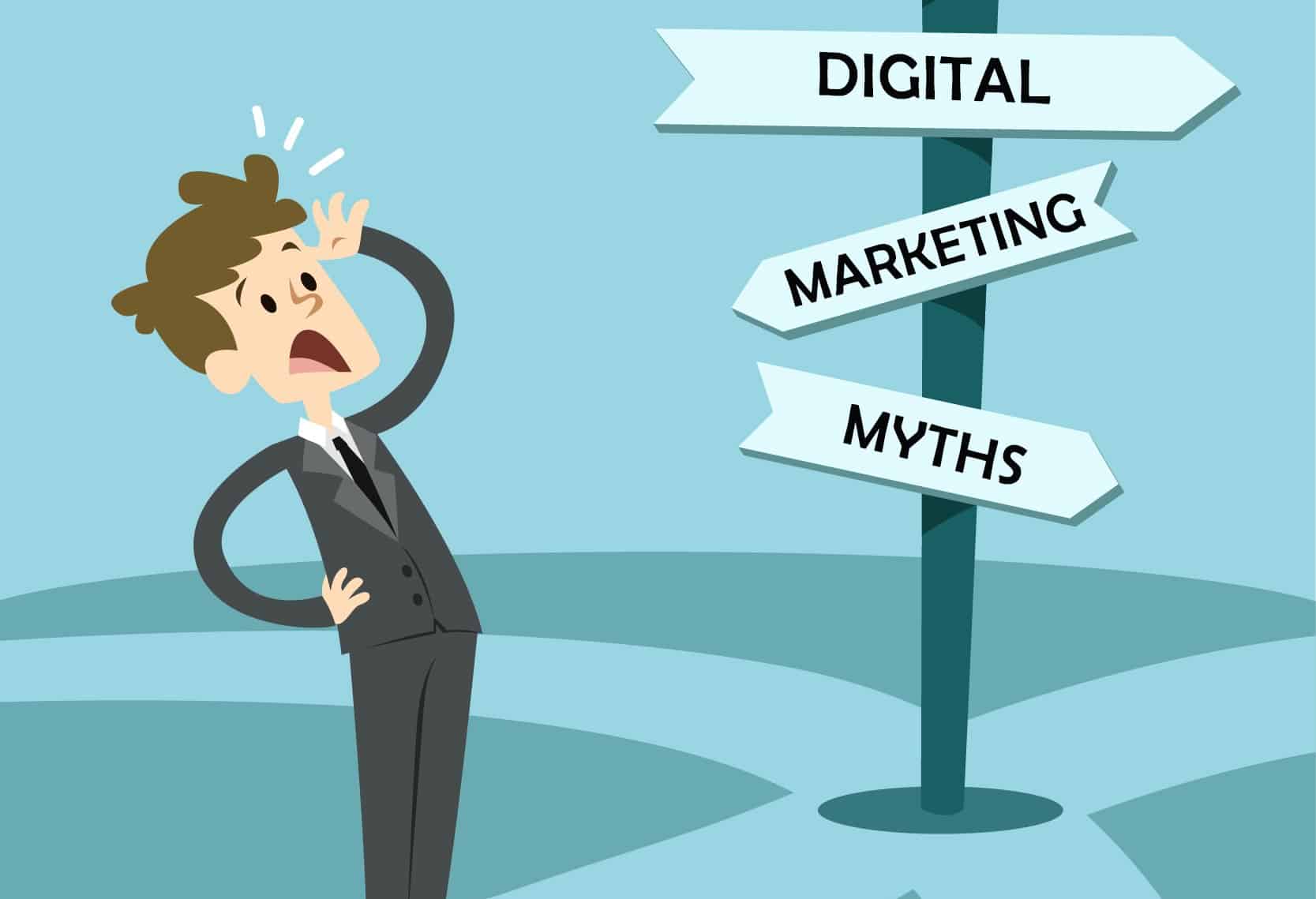
Do you ever have trouble separating the wheat from the chaff whenever it comes to digital marketing advice? That’s understandable, given that nearly everyone you meet these days has two or three marketing nuggets to share. The truth is that you should let the majority of them pass you by unnoticed.
The field of digital marketing, perhaps more than any other area of modern sales and promotion, is filled with disinformation, myths, half-truths, and downright lies. You’ve probably heard a lot of dubious ideas billed as the next great thing or as having the power to turn a sales slump into a money-making explosion. What are some of the worst offenders among hundreds of lies that will circulate in 2022? If you spend that much time with e-commerce fanatics, you’re bound to hear about them. WE recommend you do an online digital marketing course and gain first-hand information about what’s a myth and what’s not
-
Content is no longer relevant.
This legend reappears every few years for some reason. Part of the deception stems from the erroneous belief that AI (artificial intelligence) can develop content that is good enough to rank on major search engines. Perhaps that day will arrive, but perhaps it will not. But it’s not going to happen anytime soon.
As a result, it’s advised to dismiss allegations of robot-generated material, as well as the associated misconception that search engines are uninterested in content. Indeed, the written words on a blog, website or other commercial page are the single most important factor in obtaining a high ranking in search engine results pages. For the time being, the best tool for checking website rankings is a keyword rank checker.
-
SEO is on its way out.
The SEO is dead rumor circulates every now and then, and it’s linked to a slew of other misconceptions. Not only is SEO alive and kicking, but it’s also one of the most important aspects of digital marketing that requires ongoing attention.
To put it another way, you can’t conduct SEO once and be done with it for a few years. It’s critical to keep track of your progress in this area on a regular basis and to invest the money necessary to get professional aid. If you’re unsure how much to allocate to your marketing budget, use an educational online guide on SEO pricing to determine the actual cost of your campaign. It’s important you master SEO if you want to rank your content, and Online SEO Course will be helpful in such a case.
-
Purchasing a Large Number of Backlinks Is a Good Idea
There are far too many con artists willing to sell you tens of thousands of backlinks for a tiny fee. It’s not a good idea. Those transactions only benefit the sellers, and you wind up with a slew of links from sites that aren’t worth anything in terms of search engine rankings.
Also Read: Best Digital Marketing Institutes
-
It’s Always Better to Have a High Keyword Density
Surprisingly, key phrases are perhaps the subject of more myths than any other component of online marketing. The more keywords we employ in our content, the better, which is one of the most obstinate errors. Unfortunately, adopting that technique can mean disaster for businesses of any size.
Advanced algorithms in modern search engines can detect keyword stuffing from a mile away. Instead, utilize your chosen keywords casually and in moderation to avoid being detected as a perpetrator.
To Conclude,
There are numerous digital marketing fallacies out there, and the number will continue to grow over time. A brand’s fear of online marketing is understandable. However, with the correct strategy in place, it will undoubtedly assist your organization and corporation in ways you never imagined.
